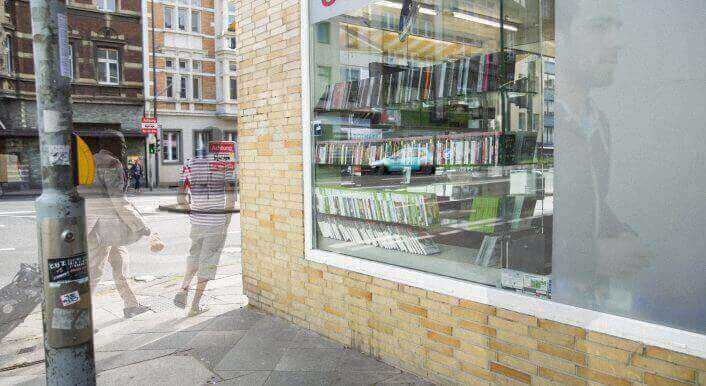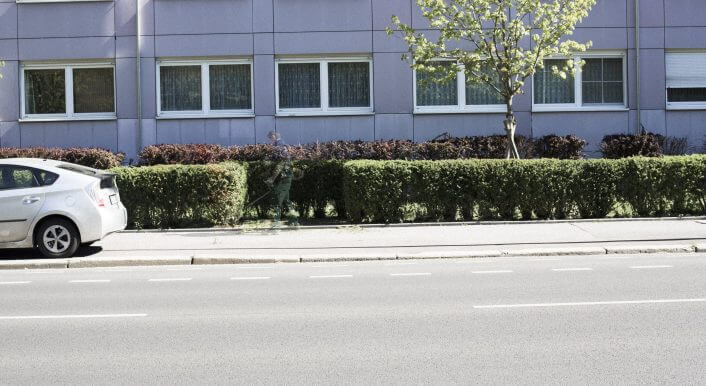Legal Creativity
In Nurnberg, Renate Scheunemann fulfills a mandate from high up: the mayor Ulrich Maly (Social Democrats) once decided that a working group on “People without health insurance” should be established. Scheunemann, a doctor at the Nurnberg health authority, was appointed as director of the working group.

Before that, she had explained the problem to Maly. As she was an advocate for integration and human rights, „the mayor initially thought that the working group would primarily deal with the issue of medical care for undocumented people living in Germany“, says Scheunemann. Without a passport or a residency permit, they have no access to health insurance. But these people hardly claim support from the working group. They have developed other solutions. In an interview with Julian Jestadt, Scheunemann speaks about what these are – and about medical emergencies, the authorities’ obligation to report and pregnancies.
Ms. Scheunemann, what can a person who lives in Germany without valid documents or insurance do when they get sick?
Renate Scheunemann: Most people go to a general practitioner they trust. Some people have been treated for free that way for years. A person looking for a doctor who will provide free treatment can by referred to one by the Medical Refugee Support. Presumably, insurance cards are also sometimes „loaned“ to others and used.

Renate Scheunemann
And in an emergency?
They are sent to a hospital or go directly to a hospital.
Isn’t that problematic? Due to medical confidentiality, the hospital does not have to pass on the patient’s information to the immigration authority, but the residency status can be disclosed when the expenses are charged to the social welfare office.
Yes, like most public authorities, the social welfare office is required report undocumented people to the immigration authorities. But the patients have often left the hospital by the time the bill goes to the social welfare office. The social welfare office then pays anyway and the person in question in already gone. Or the person is so seriously ill that they cannot be deported.
Is the health authority also obligated to report undocumented people?
No, along with all health authorities, doctors and hospitals, the health authority is bound by medical confidentiality, which also includes the identity of the people seeking help. But if there were a danger to the public, for example if a person who counts as illegal had open tuberculosis while refusing treatment and not staying in their apartment as much as possible, we would have to report them. But that has not happened so far. One time, an illegal person came to me who suspected he had HIV. I told him he should do a free and anonymous test with us at the health authority. The suspicion was confirmed. So we could risk reporting him to the immigration authority. HIV protects people from being deported. He became tolerated, and that allowed the costs for the necessary medical treatment to be covered.
He received the toleration status without difficulties?
Yes, in cases of doubt the health authority is asked for an expert opinion about a person’s ability to travel before they are deported. In the report we don’t only consider whether a person can travel, but also what the conditions in their home country are. In cases of serious illness with people from poor countries, access to medical treatment is often not guaranteed. Then they become tolerated on the basis of our report.
At the health authority you also offer maternity care for people without health insurance. How does that work?
We refer the pregnant women to a doctor for a preventative medical checkup, this is financed through donations. We also provide advice on where they can give birth and how it is financed. When I used to work for the Nurnberg Medical Refugee Support, many women applied for asylum right before giving birth – even if they had no chance for success. As an asylum seeker they could go to a hospital, the costs were covered and the child could receive a birth certificate. In the working group „People without health insurance“, we have proposed an arrangement with the immigration authority, social welfare office and hospital: people who are here illegally can go with me to the immigration authority. There they receive a status of toleration – for at least three months before their due date until six months afterwards.
What happens when the status of toleration runs out?
The child receives the same status as the father. The mother cannot be deported without the child. The parents only have to say that they want to live together as a family. That has always worked so far. Even if it sometimes wasn’t done that way. So far we have legalized everyone. We’re creative.
What does creative mean?
We are creative within the possibilities of the law. In Munich, mothers were given a status of toleration for three months before and three months after giving birth. In Nurnberg it didn’t used to be like that. We reported that in our working group. Nurnberg and Munich are always in competition with each other. So the head of the immigration authority said: „We can do that better!“ After that the toleration period was increased to half a year after giving birth. You just have to know how to talk to the people.
Do people who count as illegal in Germany treat you with suspicion?
In the beginning some are tense and agitated. But there is a lot of public coverage on our work. It has gotten around that we are bound by medical confidentiality. Many people know by now. If the affected people trust me, we can also go to the immigration authority together. I trust the people who work there. So I can assure the affected people that they will not be pressed for information. Mutual trust on all sides is the most important thing – and that is largely given.
Translation: Noah Walker-Crawford
Editor: Florian Bickmeyer
Design: Thorsten Franke, Simon Jockers, Ivo Mayr



